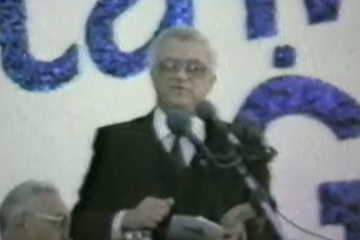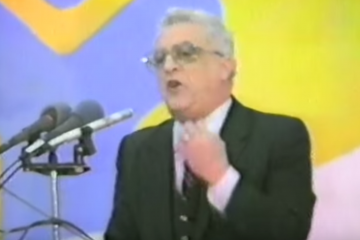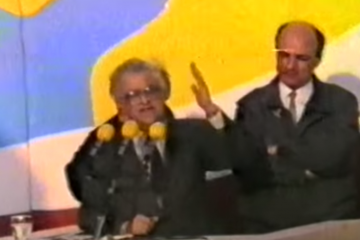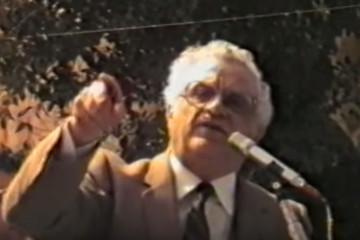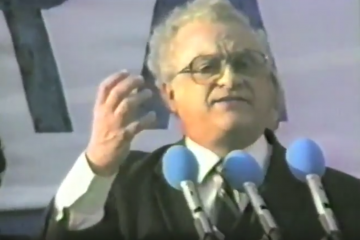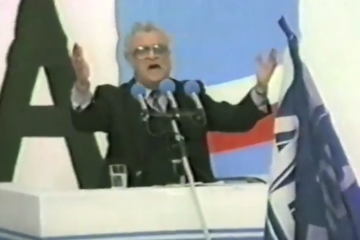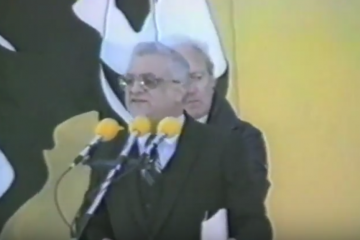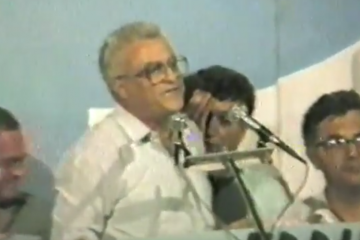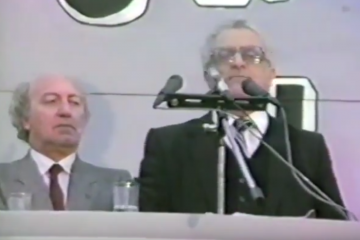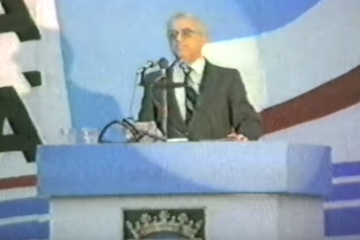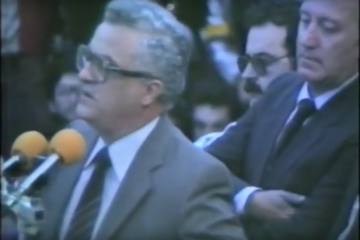There are many types of leadership; as many, perhaps, as leaders themselves. But, in general, leadership styles can be positioned on a continuum between two poles, these being the transformational leadership model and its opposite, the transactional model.
These terms were first coined by American late-20th century sociologist James V. Downton and were later developed further by American political scientist James MacGregor Burns.
The transformational leader
Transformational leaders bring about significant change in the lives of the people, (and in the case of political leaders) the parties and countries they lead because they design anew the aspirations and values of those they lead by showing them a clear vision of a better future.
Transformational leaders are not managers overseeing the day-to-day workings of the organisations they lead. Transformational political leaders have a clear long-term vision of where they want to lead their parties and countries and, even though they might disregard important details and make their fair share of mistakes, they never lose sight of their big vision.
Transformational leaders empower their followers to change things with them. They are not lone wolves and they know they have to work with others if they want to bring about fundamental change.
The transactional model
Leaders leaning towards the transactional model ‘keep the ship on an even keel’, as it were. Transactional leaders motivate with incentives and rewards. They are more concerned with making sure things run smoothly now than where the organisations they lead will be in future, when they’re not even leading them perhaps.
These two types of leadership are not good or bad in and of themselves. Organisations need both types of leadership. Political parties and countries, too, at times cry out for change and radicalism while at other times they need stability and good management.
The blighted 70s and early 80s
Maltese people my age went through their political socialisation in their teenage years in the late 1970s and early 80s when Mintoffian Socialism was giving Malta the politics of the Third World countries it was friendliest with, Gaddafi’s Libya being pre-eminent.
Most teenagers wouldn’t touch politics with a bargepole in free and stable countries. It says something about the Labour Party that it made teenagers then interested in politics, but not its politics; it made us interested in what it means to be politically free. And Eddie Fenech Adami’s vision was the answer to our questions.
The politics of freedom
Eddie Fenech Adami promised ‘The Needed Change’ and did he deliver! His was transformational leadership in droves; a freedom people my age had never really lived. And he didn’t try to make it alone. One of his greatest successes, I believe, is unsung: he inspired a generation of good men and women to enter politics and make Malta a modern European nation.
He transformed the Nationalist Party and, then, the country. And his successes are not his many years spent in government; his successes are the European lifestyle, outlook and culture we came to live and which we aspire to keep enhancing.
The long game
I will not enter into a list of Eddie Fenech Adami’s achievements; a trip round Malta will reveal much physical proof of his many achievements, from the Freeport to Gozo. I will, instead, reflect on how difficult it was and how transformational leaders like Eddie Fenech Adami are in it for the long game, despite huge difficulties.
In 1985, politics in Malta experienced a hiatus after the Church schools saga. Many deeply questioned whether the Nationalist Party could ever manage to dislodge a Labour government intent on even worse gerrymandering than in 1981; not Eddie Fenech Adami.
In the early 1990s, the Nationalist Government had very high hopes that Malta’s accession to the European Union would be swift and could happen in the 1995 enlargement. It was not to be. Many would lose heart; not Eddie Fenech Adami.
After the October 1996 election defeat, many commentators, privately and publicly, were clamouring for Eddie Fenech Adami’s resignation. Eddie Fenech Adami was back in government in 22 months, achieving European Union membership in the next five years.
It all started with 4,784 votes
Eddie Fenech Adami’s transformation of Malta started with a majority of just 4,784 votes in 1987. After 10 years as Leader of the Opposition, Eddie Fenech Adami won the most important general election since independence by a tight margin indeed. That is a salutary reminder that electoral results are not always obvious and that transformational leadership is not always very popular. Yet, it can achieve the results Eddie Fenech Adami so undeniably did.


